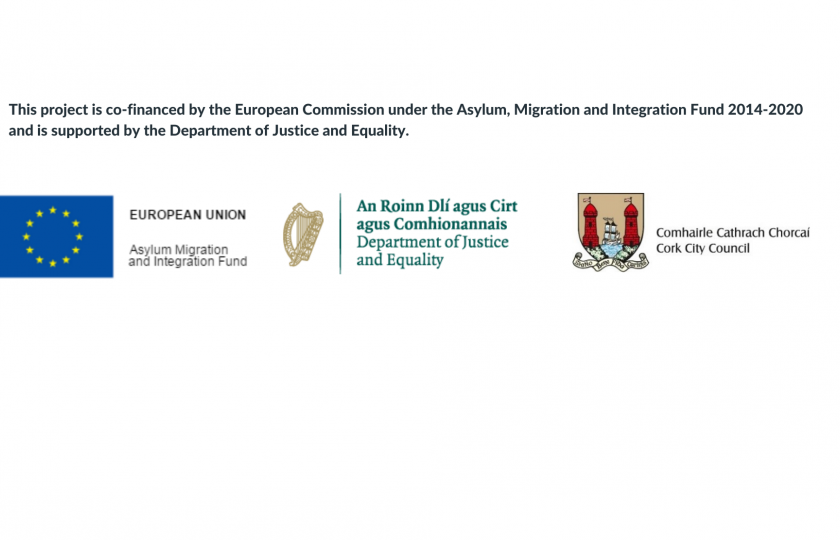
The asylum process in Ireland is informed by the 1951 Geneva Convention relating to the status of refugees. The International Protection Act, 2015 is the Irish legislation which governs the asylum process. In 2018 Ireland opted in to the Reception Conditions Directive, and this is now implemented by way of the European Communities (Reception Conditions) Regulations 2018. The Reception Conditions Directive sets out the minimum standards in terms of reception conditions (including health care, accommodation, education, right to work) the State must provide to asylum seekers.
The asylum process in Ireland can seem complicated. This page will give information on what the different terms mean, how to apply, and the rights of asylum seekers.
Common Terms
Asylum seeker: A person who has made an application for refugee and/or subsidiary protection status.
International Protection: Status in the State either as a refugee or as a person eligible for subsidiary protection.
International Protection applicant: A person who has applied for refugee status or a subsidiary protection declaration. You can also use the term “asylum seeker”.
Qualified Person: A person who has been declared a refugee or a person eligible for subsidiary protection.
Refugee: A person who, owing to a well-founded fear of being persecuted for reasons of race, religion, nationality, political opinion or membership of a particular social group, is outside his or her country of nationality and is unable or, owing to such fear, is unwilling to avail himself or herself of the protection of that country, or a stateless person, who, being outside of the country of former habitual residence for the same reasons as mentioned above, is unable or, owing to such fear, unwilling to return to it.
Person eligible for subsidiary protection: A person who does not qualify as a refugee, but in respect of whom substantial grounds have been shown for believing that he or she, if returned to his or her country of origin, would face a real risk of suffering serious harm and who is unable or, owing to such risk, unwilling to avail himself or herself of that country.
Unaccompanied minor: A person under 18 years who is outside his/her country of origin or habitual residence and who is separated from both parents and other relatives and who is not being cared for by an adult who, by law or custom, is responsible for doing so.
How to apply
You may make an application for asylum (international protection) at a port of entry to Ireland or at the International Protection Office. As a first step, you will have a preliminary interview to establish whether you wish to make an application for asylum and if so, on what grounds (the reasons for leaving your country of origin and the details of your fear of persecution or risk of serious harm). You will also be asked questions about your identity, nationality and your travel to Ireland. You will have to complete an application form for international protection both for yourself and for any dependent minor children accompanying you. Your photograph and fingerprints are also taken. Your fingerprints will then be shared under the EURODAC to determine whether you or your children have previously made an application for asylum in another EEA country. The international protection officer will make a decision on whether your application for international protection is admissible. Form more information on this process please see here.
What happens after I apply?
Once your application has been made, you should be asked whether you need accommodation. If you do, then the International Protection officer should refer you to the Reception Integration Agency (RIA) which will arrange for you to be taken to a reception centre in the Dublin area. Normally you only stay in this centre for a short period of time before the RIA finds accommodation for you in another direct provision centre in Ireland. This is known as dispersal. Before you are dispersed, you should be offered the opportunity to have a basic medical screening completed as well as an assessment of any other needs you may have. The decision on where to locate you should be based on these assessments.
You will also be issued with a permission to remain in Ireland while your application is being examined. You will be given a temporary residence certificate and you will be able to apply for a PPS number.
Asylum seekers are not required to live in direct provision centres however if you choose not to avail of this option, you will have to source your own accommodation and the State will not contribute towards that cost. If you are not living in a direct provision centre, you will not be eligible for the ‘Daily Expenses Allowance’ which amounts to weekly payments of €29.80 for children and €38.80 for adults.
You will also be issued with a long, detailed questionnaire, the Application for International Protection Questionnaire (IPO 2). You should seek legal advice before completing this questionnaire. You will also be invited to attend a longer interview where you will be asked detailed questions about your application form and your reasons for seeking asylum. Your legal representative should be present with you at this interview as well as assisting you to prepare in advance of the interview.
Where can I get legal advice and representation?
After you have lodged your application for asylum you should register with the Legal Aid Board. Provided you have an income of less that €18,000 per year, the Legal Aid Board can provide you with a free, confidential legal service.
Dublin:
Smithfield law centre, 48/49 North Brunswick Street, Georges Lane, Dublin 7.
Freephone: 1800 23 83 43 Phone: (01) 6469600(01) 6469600 Fax: (01) 6710200
email: [email protected]
Cork:
North Quay House, Popes Quay, Cork.
Freephone: 1800 202420 Phone: (021) 4554634(021) 4554634 Fax: (021) 4557622
email: [email protected]
Galway:
Seville House, New Dock Street, Galway.
Freephone: 1800 502400 Phone: (091) 562480(091) 562480 Fax: (091) 562599
email: [email protected]
It is also open to you to retain your own private solicitor.
Do I have the right to work while my application is pending?
As of the 26th January 2021, applicants for international protection who have been waiting 6 months for a first instance decision are eligible to work in Ireland.
A first instance decision is a decision by the International Protection Office as to whether you should be declared a refugee or person eligible for subsidiary protection.
A labour market permission is valid for a period of 12 months and may be renewed again afterwards. To apply you will need to fill out and return the application form and provide a clear copy of your valid and in-date temporary residence certificate.
Prior to the 26th January 2021, applicants for international protection had to wait 9 months before being eligible for the right to work and a labour market permission was valid for only 6 months.
What happens if my application for international protection is refused?
If the international protection offer makes a recommendation that:
- You should be given a subsidiary protection declaration, but not a refugee, or
- You should not be given a refugee or subsidiary protection declaration
You will receive a letter confirming the decision and outlining the reasons for the recommendation. Your solicitor should also receive a copy. It is very important that you contact your solicitor as soon as you receive this letter to discuss an appeal. You may appeal the decision to the International Protection Office within 15 working days of the letter.
Am I allowed to work while my appeal is pending?
If you had a labour market permission prior to receiving your first instance decision, you can continue to renew it and work while your appeal is pending.

